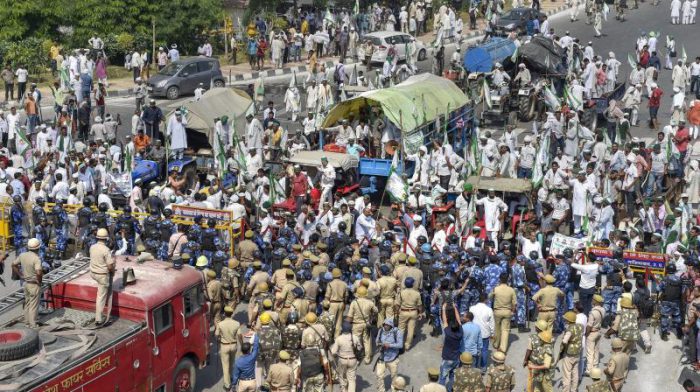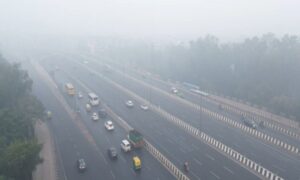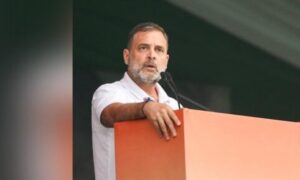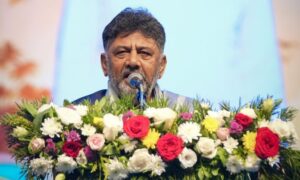
Picture Courtesy : Deccan Chronicle
The protesting farmers have finally ended their march at the Kisan Ghat in New Delhi after police allowed them to enter the national capital, police said. The Delhi Police removed barricades after midnight Tuesday night to allow the farmers stopped during the Kisan Kranti Padyatra, which started from Haridwar, to enter Delhi.
The police action against the agitating farmers was slammed by the opposition parties the Congress and the AAP.
Congress Communications in- charge Randeep Surjewala Slammed the Modi government for ignoring the plight of farmers and lashed out at the brutal police action on farmers when they were on their way to the capital to highlight their woes
क्या देश के किसान को राष्ट्रीय राजधानी में आकर अपनी पीड़ा व्यक्त करने का अधिकार नहीं?
क्या देश के किसान को मोदी जी को ये याद दिलाने का अधिकार नहीं कि लागत+50% मुनाफ़ा, जिसकी सीढ़ी पर चढ़कर आप सत्ता में आये थे, वो आज एक जुमला बन गया है?#KisanKrantiYatra pic.twitter.com/D70tMQMYBr
— Randeep Singh Surjewala (@rssurjewala) October 2, 2018
The Kisan Kranti Yatra, which began from Tikait Ghat in Haridwar on September 23, was joined by farmers from various parts of Uttar Pradesh. They carried banners of Bhartiya Kisan Union, which gave the call for the march to press for a series of demands.
Their list of demands include unconditional loan waiver for farmers, clearing of dues by sugar mills, higher prices for crops, free electricity for farms and a cut in diesel prices.
The farmers entered the national capital riding their tractors and trolleys and proceeded towards Kisan Ghat where heavy police deployment has been made, he added.
Thousands of farmers marched towards Delhi over demands ranging from farm loan waiver to cut in fuel prices, blocking traffic movement on arterial roads leading to the national capital.
National highways leading to the capital were swamped with farmers who came in from places as far as Gonda, Basti and Gorakhpur in eastern Uttar Pradesh as well as the sugarcane belt of western Uttar Pradesh.
Police picketed the border with Uttar Pradesh, imposing prohibitory orders banning assembly of five or more people and holding of any public meeting, usage of any amplifier, loudspeaker, and similar instruments.


















